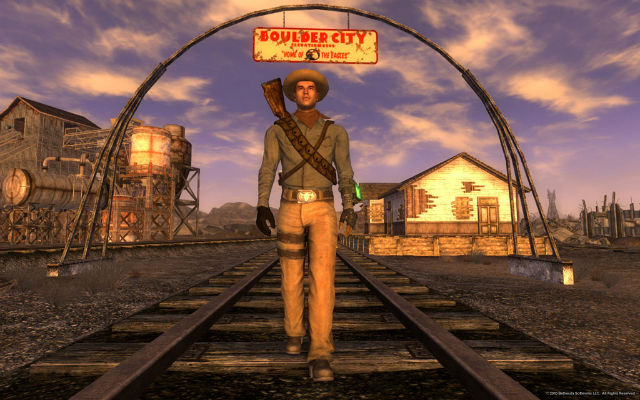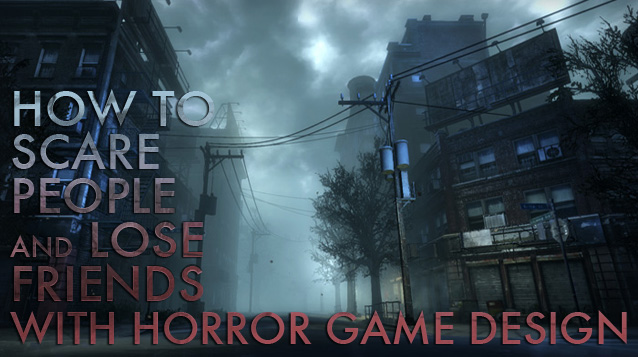

Sony introduced the PlayStation Move title Sorcery back at E3 2010 – positioning the game as an immersive example of how their new motion control peripheral could appeal to more than just casual players. For many interested gamers, Sorcery appeared to be the first “must-have” experience for the Move controller – until the title seemingly disappeared (causing some insiders to speculate the project had been cancelled).
As it turned out, even after a no-show at E3 2011, the game’s developers, The Workshop and SCE Santa Monica Studio, were still hard at work behind the scenes – attempting to push the game out for a 2012 release. Now, after three years of development and somewhat diminished interest in the Move controller, Sorcery is finally available on store shelves (and via download on the PSN) but is the final product too little too late?
Fortunately/unfortunately Sorcery is both a high quality PlayStation Move offering that is sure to satisfy players who already enjoy motion control gaming and, at the same time, an underwhelming experience for those who were expecting the title to sell the Move as a must-own peripheral. Like much of the Move library, Sorcery is a bigger, better, and more satisfying riff on Wii gameplay – in this case analog controller/wand combat (as seen in titles like Epic Mickey, Super Mario Galaxy, and Skyward Sword). As a result, it’s hard to dismiss the title – since, just like the Move itself, Sorcery offers a much more refined version of a tried-and-true experience; however, the game is still weighed down by the shortcomings of motion gameplay (repetitive combat, control hiccups, and an overall package that prioritizes style over substance).
The basic set-up is pretty simple, overeager and reckless sorcerer’s apprentice Finn inadvertently releases an ancient evil, The Nightmare Queen, who shrouds the land in darkness. Accompanied by magic feline friend, Erline, Finn sets out to rectify his mistake and set things right by defeating The Nightmare Queen. Of course, along the way, Finn learns a number of slick spells and encounters countless fantasy creatures (undead skeletons and ogres, among others).
In general, despite a decent amount of polish, nearly all core elements of Sorcery are pretty generic. Environments and enemy types aren’t particularly interesting and, in spite of Irish-inspired visuals and story details, most aspects of the project could have easily been lifted from the myriad of similarly generic fantasy offerings in the games market. At face value, even the spells lack variety (and creativity) – relying entirely on the most rudimentary magic-casting elements: Earth, Ice, Fire, Wind and Lightning. It’s not that any of the game’s various parts are downright bad, because they’re not, it’s just that none of them actually set the experience aside as anything particularly special either.
That is to say, except the combat mechanics – which, as mentioned, take the core wand-wielding gameplay of similar titles and refine the experience into a deeper and more rewarding (albeit still repetitive) series of encounters. In combat, gamers don’t just point and shoot – secondary functionalities for each of the powers create area effects and, even more interestingly, spells can be combined for increased damage (or other tactical effects). As mentioned, the Move is required and, as a result, the gameplay is tied closely to the motion-control peripheral: pointing at an enemy and flicking the Move controller fires off a projectile (such as a fireball) where as whipping the controller from left to right creates a localized attack (such as a wall of fire) – often for defensive purposes. In addition, drinking potions require the player to shake the move controller and tip it over, each time. As a result, on the surface Move applications are hit and miss – as some create fun opportunities that rarely get old and others quickly fall into the tedious motion-control category.
Combining powers is certainly one of the more entertaining, albeit sometimes frustrating, elements of the experience – as players can freeze enemies with bolts of ice (or a freezing area attack) and, subsequently, smash them to pieces with arcane bolt projectiles. Similarly, players can set-up a wall of fire and then cast a tornado through the flames – resulting in a fiery windstorm that deals increased damage to enemies in its path.
Unfortunately, the spell-casting strategies can, in the heat of battle (or for younger players), become a muddled trial-and-error experience. In general, the Move controller set-up performs well and rarely misreads a player’s intended actions; however, it does happen – especially during the game’s more frantic encounters. The distinction between flicking and swiping can get lost in translation (leading to a projectile instead of an area effect, etc) – which can be a real problem when a lot is happening onscreen or, even worse, when a younger gamer isn’t as skilled at differentiating their intended attacks. In a market where the Wii has taught kids to frantically swipe at the TV screen, Sorcery can be a punishing lesson in eye-hand coordination.
The weak (albeit quirky) story is serviceable and, coupled with fun spell mash-up gameplay, is enough to move players from beginning to end. However, there is very little reason to revisit the game upon completion since, aside from trophy and collectible hunting, there are no branching paths or choices – not to mention, by the end of the campaign, players will have easily seen all of the powers and enjoyed plenty of opportunities to experiment with them.
Sorcery is an easy game to recommend to gamers who enjoy motion-control wand/analog gameplay. The title can be played from the comfort of a couch or, for more enthusiastic players, by actively engaging in full body spell casting. However, it’s not the “must have” title (and Move hardware seller) that gamers and Sony might have been anticipating. While elements of the title are immersive and offer deeper variations of conventional motion-control experiences, other elements quickly become tedious – which will, no doubt, alienate hardcore gamers who will easily tire of the gimmicks. Ultimately, Sorcery is set to cast a spell on a specific chunk of the game market but more traditional players will find the title’s charms easy to resist.
–
Follow me on Twitter @benkendrick for future reviews as well as other movie, TV, and gaming news.
Sorcery is available now exclusively on the PS3 (with PlayStation Move required)




 Gears of War 4 Wiki – Everything you need to know about the game .
Gears of War 4 Wiki – Everything you need to know about the game . EA Sports UFC Wiki – Everything you need to know about the game .
EA Sports UFC Wiki – Everything you need to know about the game . How to get The Order: 1886 Collateral Damage Gold Trophy
How to get The Order: 1886 Collateral Damage Gold Trophy Metal Gear Solid V: The Phantom Pain Wiki – Everything you need to know about the game .
Metal Gear Solid V: The Phantom Pain Wiki – Everything you need to know about the game . 4 Ways You Can Be Tracked When In Private Browsing
4 Ways You Can Be Tracked When In Private Browsing